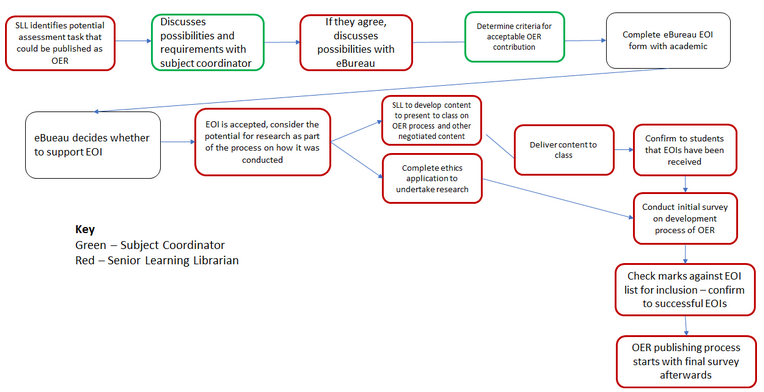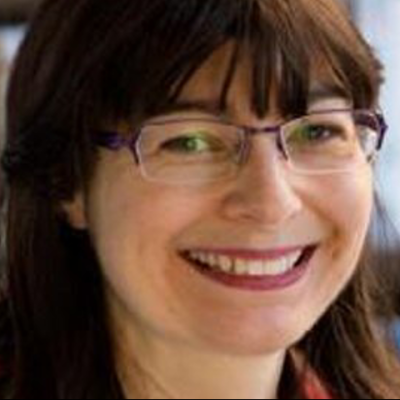Authentic Assessment
Creating Burning Issues in Classics
La Trobe University
Nicole Gammie and Dr Rhiannon Evans
Overview
Creating Burning Issues in Classics allowed the involved staff to develop a process for curating quality content that can be readily replicated for future iterations and by others to create ebooks containing student assessment projects. It considered ways to limit power imbalances with the staff involved while publishing the high quality student created content as an ebook that can be used by staff with future cohorts in the subject and other interested parties. The key to the project’s success was the type of assessment task that provided students with the chance to demonstrate skills in research and presentation and readily allowed the content to be published where the criteria were met and peer review undertaken.
Using this case study
Burning Issues outlines a process on how quality student assessments can be openly published as an ebook. After reading this chapter:
- Academic staff will: Develop awareness of the benefits and process for facilitating quality student assessments to be published as an OER and how library staff can assist.
- Library staff will: Learn strategies and techniques for working with students and academics to publish high quality student created content.
Key stakeholders
The key staff stakeholders for the project involved a collaboration between academic and professional staff. They included the Subject Coordinator (SC), Senior Learning Librarian (SLL) and La Trobe eBureau Coordinator. Students from the 2023 student cohort of a third-year Classics – Digital Humanities subject were also involved.
Background information
The project started with the identification of the publishing opportunity within the subject’s various assessment tasks. 1 assessment task required students were asked to develop a digital project written in plain English about a current ideological debate in Ancient Greek and Roman studies, considering what led to this conflict, any assumptions being made and what is at stake. This might be a familiar political or cultural scenario, such as the debate over returning museum exhibits to their country of origin; or the use of ancient mottoes and images in alt-right propaganda. The task had several outcomes requiring students to research a controversial issue and present their findings in plain English. This would also allow non-specialists to become involved in the discourse in this space, as potentially complex issues would be explained in a way that all could understand. Experience indicates that it takes time to create this type of authentic content and it would be good to share what the students are learning. With this in mind, the suggestion was made by the SLL to SC, to gauge interest in the possibility of a proposed co-created publishing opportunity with students before talking over the idea possibility with the La Trobe eBureau to make it happen, see Figure 1 for the process.
In the past, such assessment tasks rarely got past the learning management system where they were submitted. Openly publishing these projects as an ebook has allowed the public to see what students have developed and for the students to add to the discipline’s discourse in this space in the broader community. The format allows for potential content from subsequent years to be added and acts as a model for future students.
Project description
The proposal led to the publishing of 6 digital projects developed by students with an introduction written by SC and a closing chapter on research and copyright by SLL and others in mid-2024. Students were able to choose the topic within the parameters of the subject leading to a range of subject matter included in the ebook.

An application to consider publishing the content was submitted to the La Trobe eBureau for consideration as they are responsible for managing the publishing of OER textbooks. With some clarification around peer review processes to be used and the gap which the publication would fill, the idea was accepted.
To help explain the opportunity to all students in the subject as being enrolled was the only criteria to being able to be involved, a short (3min) video was developed and included in the Learning Management System (LMS) along with a class presentation to encourage participation. Copyright considerations around images, music etc were also discussed so students were aware this may need to be checked if they were successful.
To avoid power imbalances and publishing low quality assessments, interested students were asked to submit an expression of interest and their project had to receive a mark of 75 or greater to be considered when the assessment was finalised. Expressions of interest were collected by the SLL who had no role in marking the assessment tasks, with names provided to the SC once the marking was finalised. Students were notified about being accepted. They were asked to incorporate the feedback provided on their assessment tasks and write a biography and reflection piece on why they chose that topic. These were then passed on for a second round of review by another academic expert, who provided further feedback for students to consider. Students retained the copyright to their projects and were asked to sign a standard author agreement with the La Trobe eBureau to allow publication, and they were asked to select an appropriate Creative Commons Licence for their work. Once the content was finalised, copyright compliance checks were undertaken, and copyediting and checking were managed by the La Trobe eBureau.
Key outcomes
So far, the team has achieved a published ebook on the La Trobe eBureau website.
Publicity for the book will be undertaken to encourage its use beyond the subject into the broader community. The ebook was launched online in late October 2024 with an open invitation as part of Open Access Week 2024 activities. Further communications will be made to other potential interested parties Presentations are also being made in various open education resource spaces as opportunities arose.
Learnings and recommendations
This is a highly replicable project. The key is to identify a suitable project where there are links to the broader community and add to the discussion around these topics. Also consider the timeframes around publishing, this may need to occur beyond the semester timeframe as peer review takes time, but is an important component of a quality product. If the contributors are likely to leave the organisation before publication (as in this case, most third years graduated shortly after completing the assessment task), non-institutional contact information needs to be gathered.
A challenge can be to ‘sell’ the idea to the students, as without them there is no book, while being honest about the commitment involved. Students should be made aware that the publication can be leveraged as proof of their skills in communication and digital technologies, and used as part of a portfolio when applying for work or further study. Having an example of another subject which had published student projects helped show the students what the end product could look like. There are a number of examples, although care should be taken to consider their purpose. The content within Burning Issues was not designed to meet specific course outcomes for high school students for example.
There is the potential for negative comments on social media around what the students have presented as there can be some strongly held views around aspects of disciplines. To counter this, the chapter written by SLL contains some information around possible strategies to minimise personal impact should this arise.
There were plans to undertake some research on the process to assist with refining how it was implemented. This did not occur due to not being able to get ethics approval in time. The idea is to ask students questions about their experiences, and these would be used in publications.
Champion statement
Student feedback:
Feedback from the students indicated it was a smooth process to be involved with, and only required responding to questions around copyright, content and some copy editing clarifications.
In practice
- Carefully consider the assessment tasks: could sharing them add to the discourse for that discipline?
- Copyright of any content included in the projects – can it be shared? Submitting material for an assessment task can be different to publishing.
- If the subject matter is sensitive for either the contributors or potential readers, what steps are to be put in place to limit the impact? For example, is a warning notice regarding content relevant to consider?
- Getting feedback on the process – do you need ethics approval and what is the lead time needed to get the application approved?
- Value of having a handover plan or process should staffing changes occur.
- Interactive or digital project to be undertaken for the assessment task.
- Students to write a bio so we learn a bit about them and a reflective piece to provide insight into why that topic was chosen (where there is a choice) within the parameters of the subject.
Image description
Figure 1: Overview of the full process used to develop the Burning Issues in Classics ebook
Flowchart diagram outlining the steps involved in the full process used to develop the ebook. Step one starts with the SLL identifying a potential assessment that could be published as an OER. Next, a discussion is held with the SC about this possibility. Where agreement is reached, the project proposal is discussed with the La Trobe eBureau for approval. The approval form is completed including defining criteria for acceptable student contributions (expression of interest and a mark of 75+). A decision is made whether to accept the proposal and if successful, consideration of undertaking research along with the development of class materials to explain the opportunity is undertaken. If research is to occur, then an ethics application is needed as students will be surveyed. Content is delivered to the class explaining the opportunity and what students need to do. Once marks are finalised, results are checked against the list of expressions of interest received to determine who is involved and the publishing process continues from here including peer review.
Acknowledgement of peer reviewers
The authors gratefully acknowledge the following people who kindly lent their time and expertise to provide peer review of this chapter:
- Sarah McQuillen, Academic Librarian, University of South Australia
How to cite and attribute this chapter
How to cite this chapter (referencing)
Gammie, N., & Evans, R. (2024). Creating Burning Issues in Classics. In Open Education Down UndOER: Australasian Case Studies. Council of Australian University Librarians. https://oercollective.caul.edu.au/openedaustralasia/chapter/creating-burning-issues-in-classics
How to attribute this chapter (reusing or adapting)
If you plan on reproducing (copying) this chapter without changes, please use the following attribution statement:
Creating Burning Issues in Classics by Nicole Gammie and Rhiannon Evans is licensed under a Creative Commons Attribution 4.0 International licence.
If you plan on adapting this chapter, please use the following attribution statement:
*Title of your adaptation* is adapted from Creating Burning Issues in Classics by Nicole Gammie and Rhiannon Evans, used under a Creative Commons Attribution 4.0 International licence.
An open education program which works with teaching staff to develop themselves into open practitioners by using OER to engage in open educational practices. Based at La Trobe University and hosted by the Library.



